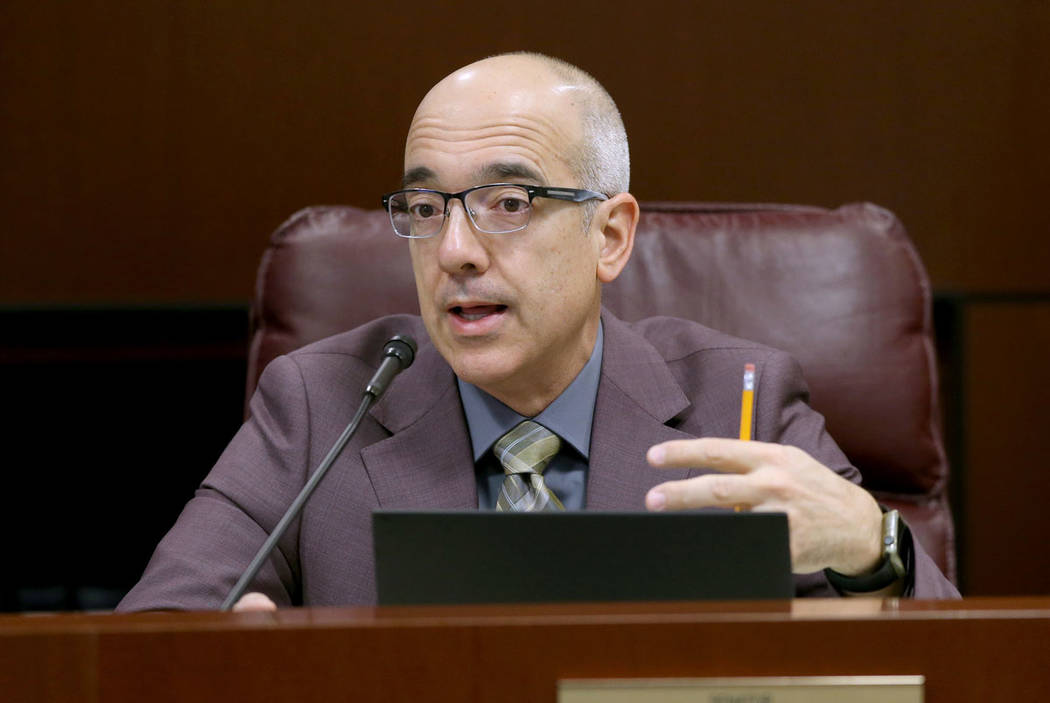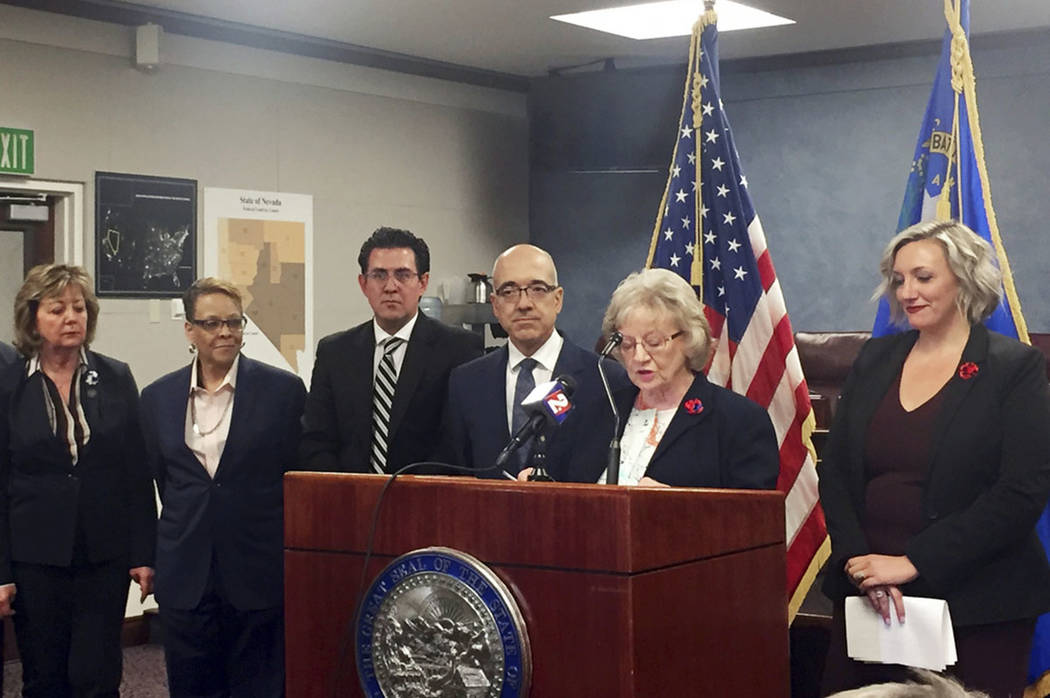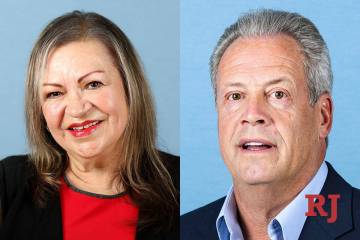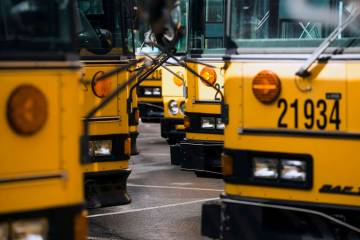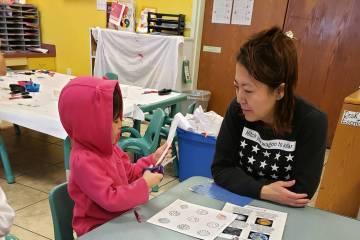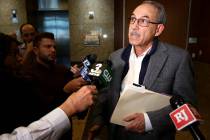Nevada lawmakers take small steps to adequately fund education
If there’s one thing the past week in Carson City taught us, it’s that you can’t promise the world without the tools to deliver. And right now, Nevada lawmakers just don’t have the tools (that is, the funding) to fix public education.
Let’s break it down.
■ SB 543 would overhaul the current education funding formula, the Nevada Plan of 1967.
Under the bill, the state would create a new base per-pupil amount that has yet to be calculated (for context, a 2018 study recommended $9,238 per pupil as adequate).
The bill also would provide more money for every child in special education or gifted programs, those who are in poverty and English language learners. That money would be doled out for each student as an additional fraction of the base per-pupil amount, which also has yet to be determined.
It also would end a practice known as “supplanting,” according to Sen. Mo Denis, D-Las Vegas, who helped draft it.
Right now, the state’s general fund is the last source of revenue used for basic per-pupil support. If other state revenues come in higher than projected, education money is returned to the general fund. Over $477 million allocated for schools has been returned since fiscal year 2000.
This bill would require that the state general fund contribution increase when state revenues increase — and likewise decrease when the economy is not so hot. But if any money is left over at the end of the biennium, it would not revert to the general fund.
■ SB545 would redirect the 10 percent retail marijuana tax to education as an additional funding source. This would boost spending by $120 million over the biennium, adding $120 and $124 to the current average per-pupil amounts of $6,052 in 2020 and $6,116 in 2021.
The casualty: school safety improvements, which the pot tax was originally going to pay for under Gov. Steve Sisolak’s original budget proposal. That $54 million plan was cut by over $30 million.
■ An amendment to AB309 would allow counties to impose an additional 0.25 percent sales tax. That money could be used for early childhood education, adult education, truancy prevention, homelessness or affordable housing initiatives or incentives to recruit and retain teachers.
The amendment also would free up categorical money currently earmarked for technology and other initiatives to enable districts to use it as they wish. In Clark County, that would mean $13 million in unrestricted funds.
All in all, Nevada only took a few baby steps forward this week in the 5K race to adequately fund education.
Education funding supporters were dismayed on Thursday when legislators again failed to keep revenue from a 3- percent room tax hike passed in 2009 in a supplemental account for education. Instead, that money was shifted to replace other education revenues.
The reality: If legislators had kept it in the supplemental account, it would have left another multimillion-dollar hole in the state budget.
But how do you fund raises, boost school safety and begin to reach an adequate per-pupil amount without raising new revenue? You don’t, and if you don’t — well, something has to give.
“I think with aggressive action here we might be able to move into and through the next biennium without the most draconian cuts out in our school districts,” said Chris Daly of the Nevada State Education Association. “But it seems to me that the state, without some additional new revenue, is going to eventually hit a wall.”
Contact Amelia Pak-Harvey at apak-harvey@reviewjournal.com or 702-383-4630. Follow @AmeliaPakHarvey on Twitter. On Education appears every other Saturday.



